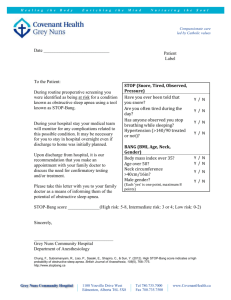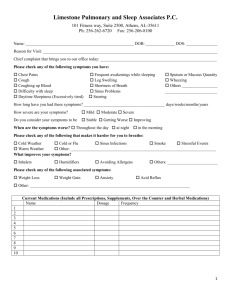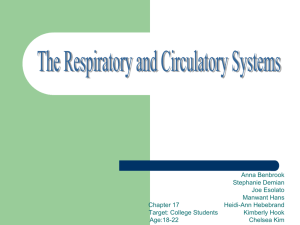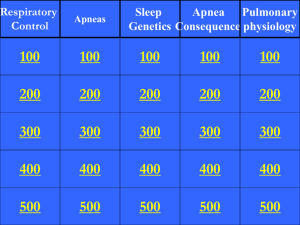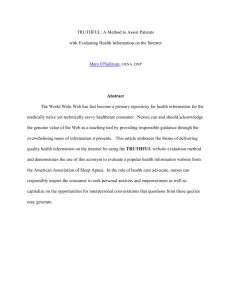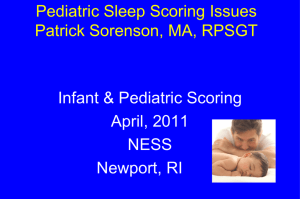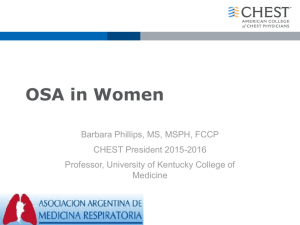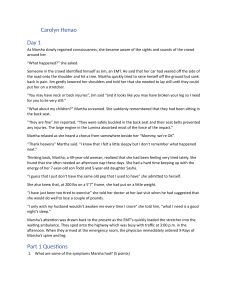study terminology - American Sleep Medicine
advertisement
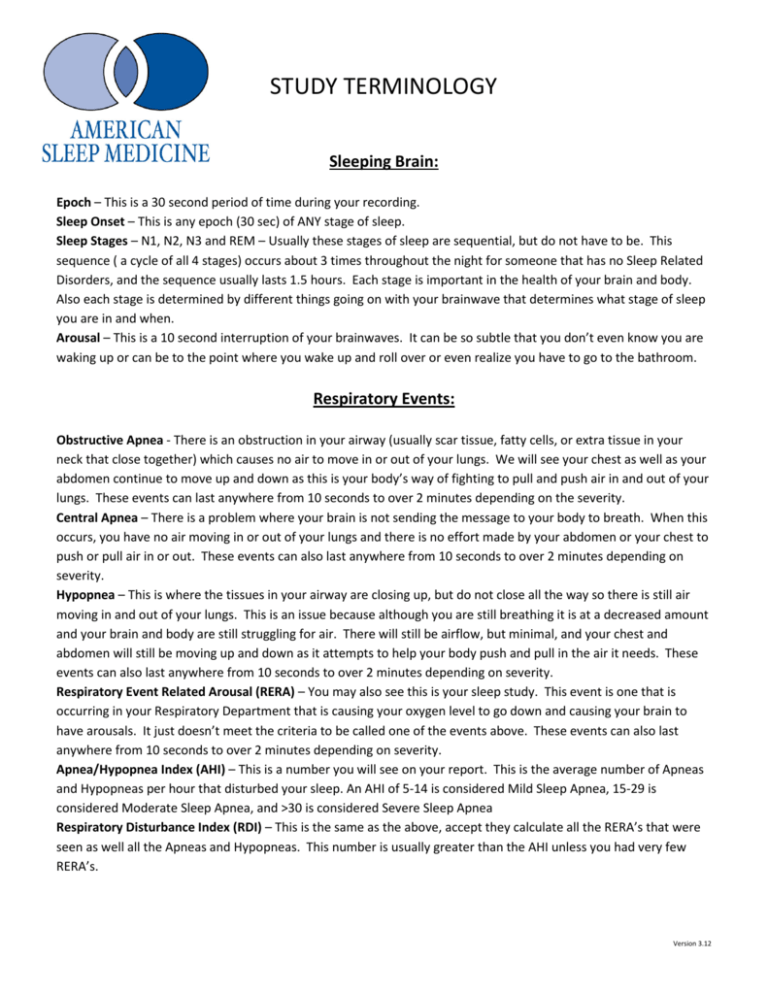
STUDY TERMINOLOGY Sleeping Brain: Epoch – This is a 30 second period of time during your recording. Sleep Onset – This is any epoch (30 sec) of ANY stage of sleep. Sleep Stages – N1, N2, N3 and REM – Usually these stages of sleep are sequential, but do not have to be. This sequence ( a cycle of all 4 stages) occurs about 3 times throughout the night for someone that has no Sleep Related Disorders, and the sequence usually lasts 1.5 hours. Each stage is important in the health of your brain and body. Also each stage is determined by different things going on with your brainwave that determines what stage of sleep you are in and when. Arousal – This is a 10 second interruption of your brainwaves. It can be so subtle that you don’t even know you are waking up or can be to the point where you wake up and roll over or even realize you have to go to the bathroom. Respiratory Events: Obstructive Apnea - There is an obstruction in your airway (usually scar tissue, fatty cells, or extra tissue in your neck that close together) which causes no air to move in or out of your lungs. We will see your chest as well as your abdomen continue to move up and down as this is your body’s way of fighting to pull and push air in and out of your lungs. These events can last anywhere from 10 seconds to over 2 minutes depending on the severity. Central Apnea – There is a problem where your brain is not sending the message to your body to breath. When this occurs, you have no air moving in or out of your lungs and there is no effort made by your abdomen or your chest to push or pull air in or out. These events can also last anywhere from 10 seconds to over 2 minutes depending on severity. Hypopnea – This is where the tissues in your airway are closing up, but do not close all the way so there is still air moving in and out of your lungs. This is an issue because although you are still breathing it is at a decreased amount and your brain and body are still struggling for air. There will still be airflow, but minimal, and your chest and abdomen will still be moving up and down as it attempts to help your body push and pull in the air it needs. These events can also last anywhere from 10 seconds to over 2 minutes depending on severity. Respiratory Event Related Arousal (RERA) – You may also see this is your sleep study. This event is one that is occurring in your Respiratory Department that is causing your oxygen level to go down and causing your brain to have arousals. It just doesn’t meet the criteria to be called one of the events above. These events can also last anywhere from 10 seconds to over 2 minutes depending on severity. Apnea/Hypopnea Index (AHI) – This is a number you will see on your report. This is the average number of Apneas and Hypopneas per hour that disturbed your sleep. An AHI of 5-14 is considered Mild Sleep Apnea, 15-29 is considered Moderate Sleep Apnea, and >30 is considered Severe Sleep Apnea Respiratory Disturbance Index (RDI) – This is the same as the above, accept they calculate all the RERA’s that were seen as well all the Apneas and Hypopneas. This number is usually greater than the AHI unless you had very few RERA’s. Version 3.12




